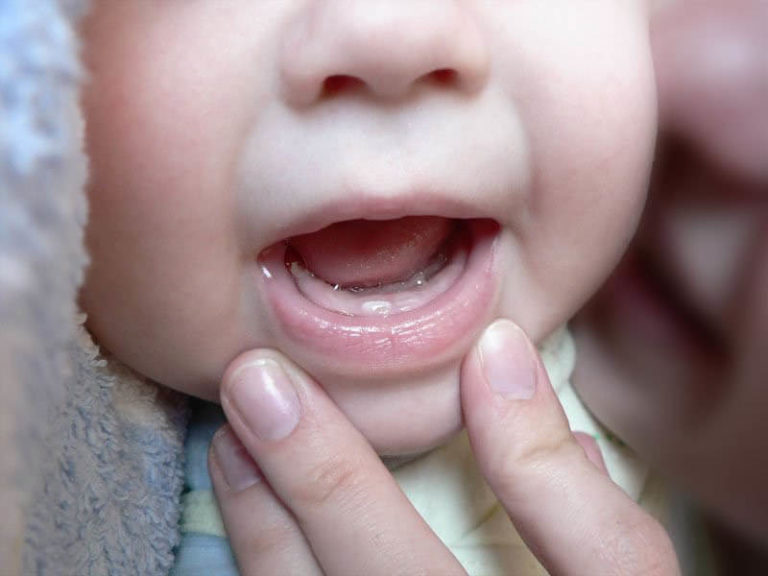 Source: bing.com
Source: bing.comAs a parent, you may be curious about when your baby’s teeth will start to develop. The process of teething can be exciting, but it can also cause discomfort for your little one. Understanding the timeline of baby teeth development can help you prepare for this stage in your child’s life.
Table of Contents
When Does Teething Begin?
Teething typically begins between 4 and 8 months of age, but it can vary from child to child. Some babies may begin teething as early as 3 months, while others may not start until 12 months or later. The timing of teething can be influenced by genetics, nutrition, and other factors.
What Are the Signs of Teething?
As your baby’s teeth begin to emerge, you may notice some signs of teething. These can include:
- Irritability and fussiness
- Increased drooling
- Biting or chewing on toys and other objects
- Difficulty sleeping
- Swollen gums
It’s important to note that these symptoms can also be caused by other factors, such as illness or developmental changes. If you’re unsure whether your baby is teething or experiencing another issue, it’s always best to consult with your pediatrician.
What Is the Order of Baby Teeth Development?
Baby teeth generally emerge in a predictable order, although there is some variation from child to child. The typical order of baby teeth development is as follows:
- Lower central incisors (bottom front teeth)
- Upper central incisors (top front teeth)
- Upper lateral incisors (teeth on either side of the top front teeth)
- Lower lateral incisors (teeth on either side of the bottom front teeth)
- First molars (back teeth used for grinding)
- Canines (pointed teeth next to the lateral incisors)
- Second molars (back teeth used for grinding)
Most children will have a full set of 20 baby teeth by the age of 3. These teeth will eventually fall out to make room for permanent teeth, which typically begin to emerge around age 6.
How Can You Help Your Baby Through Teething?
Teething can be a challenging time for both babies and parents. Here are some tips to help your baby through this stage:
- Offer your baby a cool, damp cloth to chew on or rub against their gums
- Provide teething toys or rings that can be chilled in the refrigerator (never freeze them)
- Give your baby a massage on the gums with a clean finger
- Offer your baby soft, cold foods like yogurt or pureed fruits and vegetables
- Use over-the-counter pain relievers like acetaminophen or ibuprofen (always consult with your pediatrician first)
- Give your baby plenty of love and comfort during this challenging time
Remember that teething is a normal part of your baby’s development, and it will eventually pass. With patience and care, you can help your little one get through this stage and emerge with a bright, healthy smile.
Conclusion
Teething is an exciting time in your baby’s life, but it can also be challenging. By understanding the timeline of baby teeth development and the signs of teething, you can better prepare for this stage and support your child through it. Remember to consult with your pediatrician if you have any concerns about your baby’s dental health or overall well-being.
So, when do baby teeth develop? The answer is, it depends! But generally, you can expect your little one to begin teething between 4 and 8 months of age, with a predictable order of teeth development to follow. By staying informed and taking a proactive approach, you can help your baby through this exciting and challenging time in their life.
Frequently Asked Questions
Q: Can babies be born with teeth?
A: Yes, it is possible for babies to be born with teeth, although it is rare. These teeth are called natal teeth and may need to be removed if they are loose or pose a risk of choking.
Q: How long does teething last?
A: Teething can last for several months, with different teeth emerging at different times. Most children will have a full set of baby teeth by the age of 3.
Q: Is it normal for teething to cause a fever?
A: While teething can cause some discomfort, it should not cause a fever. If your baby has a fever or other symptoms of illness, it’s important to consult with your pediatrician.
Q: Can teething cause diarrhea?
A: Teething is not known to cause diarrhea, but the increase in saliva that comes with teething can sometimes lead to loose stools. If your baby has persistent diarrhea or other symptoms of illness, consult with your pediatrician.
Q: When should I take my baby to the dentist for the first time?
A: The American Academy of Pediatrics recommends that children have their first dental visit by the age of 1, or within 6 months of their first tooth emerging. Your dentist can provide guidance on how to care for your baby’s teeth and gums as they continue to develop.
